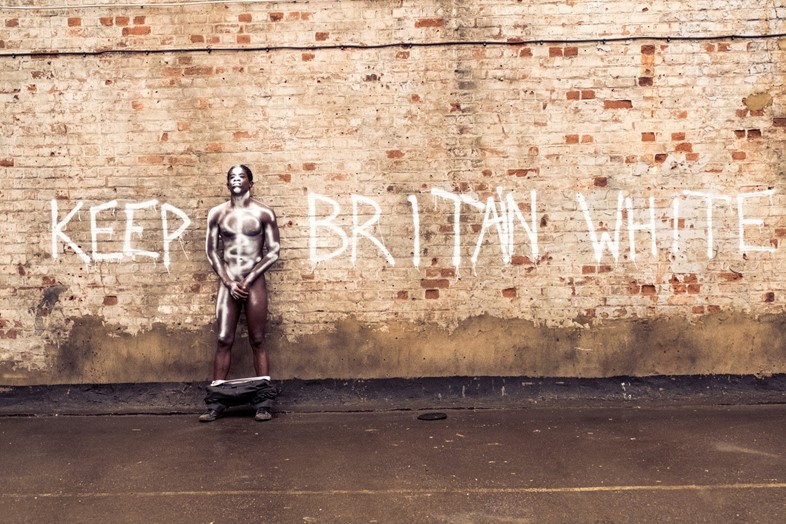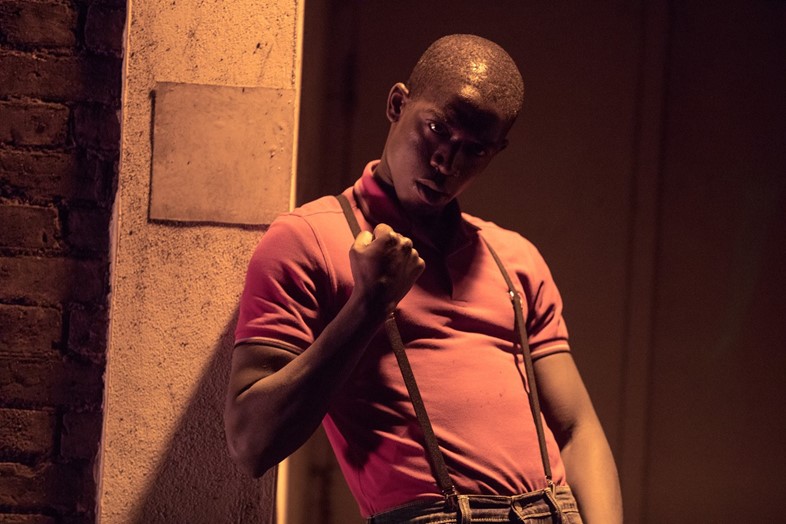Adewale Akinnuoye-Agbaje on his autobiographical film Farming, which shines a light on a relatively unknown British social practice
Over a 25-year onscreen career, Adewale Akinnuoye-Agbaje has become a character actor favourite, balancing key supporting parts in blockbusters (The Bourne Identity, Suicide Squad) with steady TV work, including major roles in two of the most influential series of their time: Lost and Oz.
His autobiographical feature debut as a writer-director, Farming, now arrives with starry names like Kate Beckinsale and Gugu Mbatha-Raw in its ensemble. The title refers to a social practice in which Nigerian immigrants to Britain would temporarily give their children to white foster families, sending money for a child’s keep while they studied to make a better life for themselves. Akinnuoye-Agbaje’s onscreen surrogate, Enitan, is played as a teen by the magnetic Damson Idris, who picked up the Best Performance award at the Edinburgh International Film Festival where Farming also won Best British Film.

‘Farmed out’ as a baby in Tilbury, Essex, later circumstances meant Akinnuoye-Agbaje was placed permanently in the care of a white working-class family juggling multiple farming placements, in a community where deep-rooted racism drove him to loathe his own skin colour as a child. As a teen in the early 1980s, he ended up a member of a violent white skinhead gang, essentially joining those who psychologically and physically tormented him so as to abate his own mistreatment; the group used him to stir up fights with rival gangs.
In addition to writing, directing and providing vocals for the film’s soundtrack, Akinnuoye-Agbaje also plays his own father in the film, an experience he describes as, “very surreal, but also cathartic because it was the first time I could literally and metaphorically stand in his shoes. What it enabled me to do is see myself from his perspective, but also to have empathy and compassion for him at the same time. And that I hadn’t done until that point, not to that degree.”

There is understandably less compassion shown towards the violent skinhead groups who abused and warped him as a young man, but Akinnuoye-Agbaje’s screenplay addresses something about how some of those racist values came to be: “What I tried to do with the film is not judge any of the characters and display them as I perceived them as a child, allowing the audience to make their own judgements.”
“Many of the characters were products and victims of the time and of the circumstances,” he says. “This generation of skinheads felt very much under threat and disenfranchised from the mainstream because they felt the immigrants were coming over and taking what was theirs; that the so-called Britain that they knew and loved, that their parents had upheld, was changing. They didn’t have the tools to actually evolve or move forward, and so they decided to take a stance in whatever way they could. I think it was a matter of ignorance and fear because this is the first time that they were interacting with black people face to face. This was not London; this was the southeast. It was the clash of these cultures for the first time and those were the teething problems. My life was part of the teething problems of them getting to understand who we were, because prior to that their understanding was defined through the government and the BBC, whether it was watching Jim Davidson, Love Thy Neighbour... those set the status quo as to how people perceived Africans and immigrants.”
The film’s opening credits montage sets up the historical context of Britain around the time of Akinnuoye-Agbaje’s birth, with footage related to, among other things, the arrival of the Windrush generation and Enoch Powell’s ‘Rivers of Blood’ speech. “Broadly speaking,” he says, “for me, Britain’s relationship to its immigrant population has always existed in a state of tolerance and not acceptance. We’ve seen that recently with very racist policies, where they were trying to basically get rid of a generation of West Indian pensioners that had devoted their labour to the building of this country.”
“Without the film necessarily being political,” he continues, “there are parallels that can be drawn on the current state with regard to Brexit, which is all about identity; setting up borders and pushing people out. There hasn’t been enough change for me, and I think films like this bring it to the forefront. The practice of farming is very much under the radar. It’s basically unknown and this occurred on our own doorstep, and formed the first black British generation to be born on British soil. These are things that need to come out because of all of the issues that they raise within our society. As does the contribution that was made by the black immigrant population to form the British culture. That has to be sincerely acknowledged and accepted. Unless you have that acceptance and it shifts from tolerance, there will always be a tug of war and there will always be ripples of cultural discontent. And I think that’s what you’re seeing, unfortunately.”
Farming is in cinemas nationwide from October 11, 2019.











